Providing clean water to the more than 750 million people worldwide who do not have access to it is a mission that is close to the 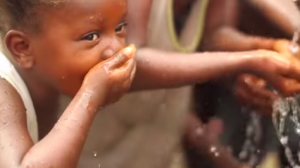 pump industry. Pump technologies from major companies like SEEPEX, Grundfos, Xylem, Atlas Copco, GE and others help to make clean water possible in remote communities across the globe. But major corporations are not the only ones making a difference.
pump industry. Pump technologies from major companies like SEEPEX, Grundfos, Xylem, Atlas Copco, GE and others help to make clean water possible in remote communities across the globe. But major corporations are not the only ones making a difference.
Bear Creek Water, for example, created an inventive way to get involved. Founded in 2008, a small church community in Lodi, California was inspired by the fundraising efforts of it’s youth group, which was recycling bottles and aluminum cans to raise money. Bear Creek Community Church’s pastor, Bill Cummins, thought about ways to expand this idea and do something bigger. “As Americans, in general, we take our abundant access to clean water for granted,” says Cummins. “We splurge on water and are not even careful with water. We really don’t even think twice about it. We turn on our tap, and it’s there for us.” While at a leadership conference in Sacramento several years ago, Cummins and a group of his church leaders decided they wanted to make a commitment to make a difference in their community and worldwide. The world’s water crisis was a perfect opportunity. The church partnered with Houston, Texas-based Living Water International, and formed the Bear Creek Water organization within its congregation.
They started with a simple, small, attainable goal.
“We thought, maybe we could raise enough money through recycling efforts to build one well,” Cummins says. “From there it just evolved and grew.” In just 60 months, Bear Creek Water has helped to build 74 wells that have impacted more than 50,000 people in 26 countries on five continents.
The grass roots campaign began at Bear Creek Community Church. Thanks to the leadership of Director Ann Pacheco and behind-the-scenes efforts her team (Brian Butler, Fred & Flower Hagele, Rick Lutes, Lori Rolleri, Leslie Peterson, Mark Choudeck, Frank Brummett, Kevin Straw, Ed Shakespeare, Rick Gonzales and Tim Russell) this group is making a difference.
And they are not slowing down.
The Bear Creek Water team has a goal to help 100,000 people by 2019. The small community church has only about 1,000 members, but almost all of them participate in the program. Each week, they earn about $600 in recycling efforts. They receive help from local schools and hospitals who contribute their recycling.
The Bear Creek Water has a van and the team picks up the recycling from various locations. They have other fundraising efforts to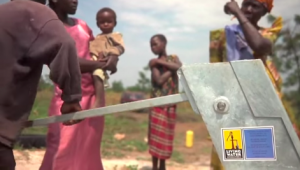 pay for the expenses of the program so that 100 percent of the money earned through the recycling can go directly to building the wells for the people who need clean water.
pay for the expenses of the program so that 100 percent of the money earned through the recycling can go directly to building the wells for the people who need clean water.
“It’s such a simple concept,” Cummins says. “We are not asking people to reach into their pockets and give us their money. We just ask for their recycling. So we are not only providing clean water to people all over the world, but we are also helping the environment.”
Safe water is the fundamental first step in human development. To put things into perspective:
- Three times the population of the United States lacks clean life-giving water
- Women in third world countries spend 200 million hours a day collecting dirty, disease-producing water. This intensive time prohibits them from working. It prevents their children from going to school or having time to play.
- 6-8 million people die annually from water related diseases
- Lack of clean water kills children at a rate equivalent to a jumbo jet crashing every four hours
Progress is being made globally, but entire communities are being overlooked. Generally, it’s the poorest people with the least political power who continue to suffer. These are the people Bear Creek Water intends to help. In the past 20 years, two billion people have gained access to safe drinking water globally through the efforts of many organizations. Cummins and his Bear Creek Water team see these efforts as more than just fundraising for a good cause. Each of the wells built from Bear Creek Water funds have hand pumps that are easy for the members of the community to use and each well provides water to 500-1,000 people.
“Children die without fresh drinking water,” Cummins says. “By providing clean water, we are saving lives.”
Click here to learn more!

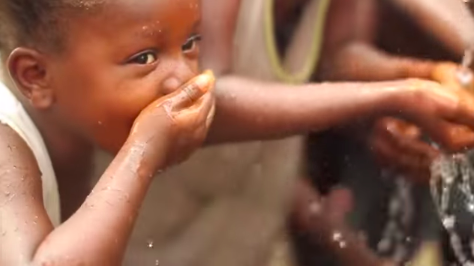
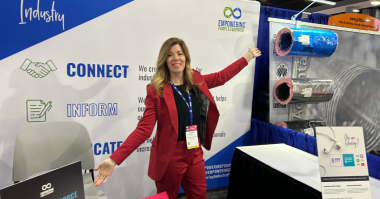
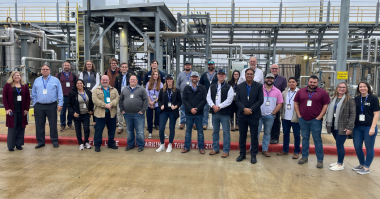

Comments